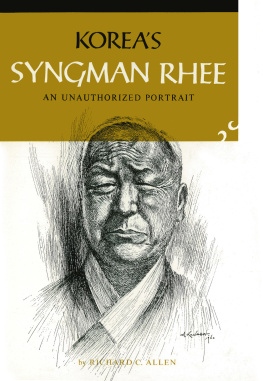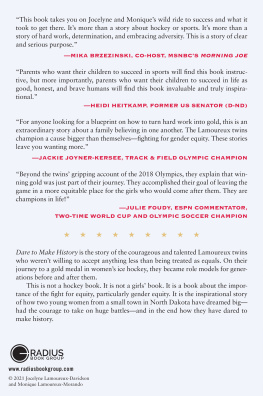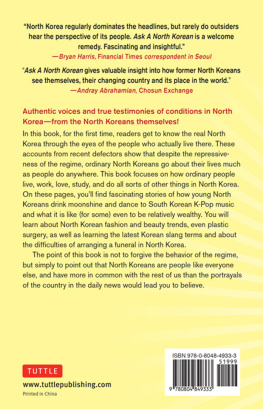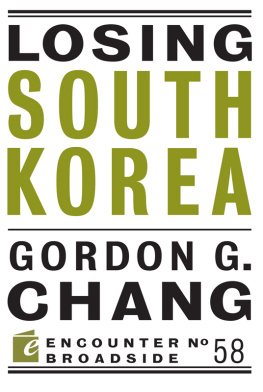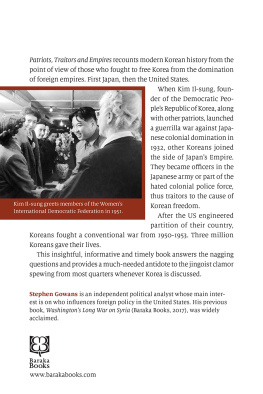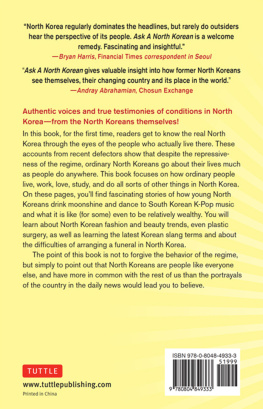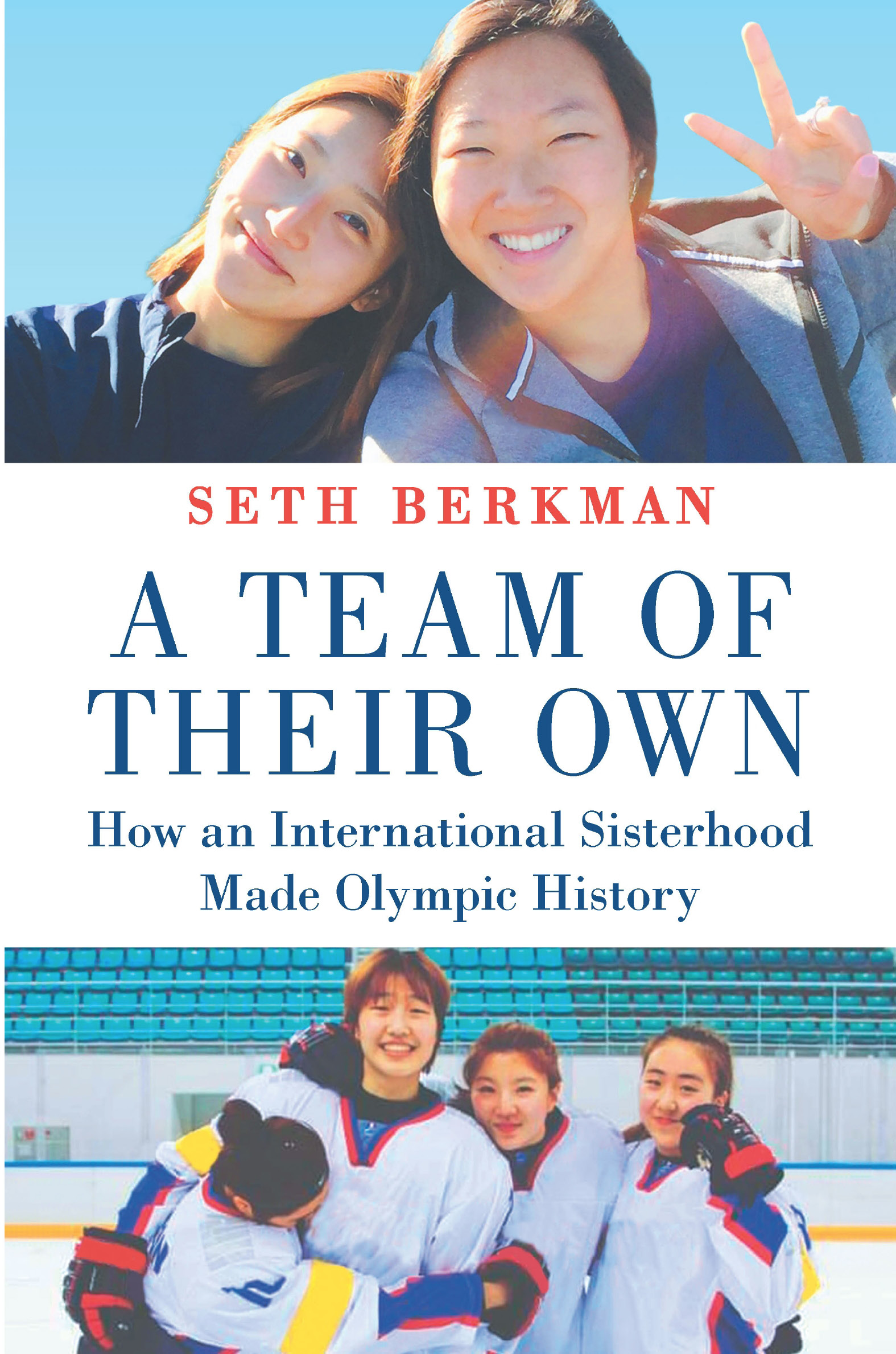
The inspiring, unlikely story of the American, Canadian, South Korean and even North Korean women who joined together to form Koreas first Olympic ice hockey team.
Two weeks before the opening ceremony of the 2018 Winter Olympics, South Koreas womens hockey team was forced into a predicament that no president, ambassador or general had been able to resolve in the sixty-five years since the end of the Korean War. Against all odds, the group of young women were able to bring North and South Korea closer than ever before.
The team was built for this moment. They had been brought together from across the globe and from a wide variety of backgroundsconcert pianist, actress, high school student, convenience store workerto make history. Now the special kinship they had developed would guide them through the biggest challenge of their careers. Suddenly thrust into an international spotlight, they showed the powerful meaning of what a unified Korea could resemble.
In A Team of Their Own, Seth Berkman goes behind the scenes to tell the story of these young women as they became a team amid immense political pressure and personal turmoil, and ultimately gained worldwide acceptance on a journey that encapsulates the truest meanings of sport and family.
Praise for A Team of Their Own
Berkman has the seasoned sportswriters keen observational skills and gripping storytelling ability, combined with elegant, witty prose and a lot of heart.
Euny Hong, author of The Birth of Korean Cool
Seth Berkmans A Team of Their Own is a lively, crisply written rollercoaster of a book that tells the story of the women of South Koreas hockey team in the 2018 PyeongChang Winter Olympics.
Michael Breen, author of The New Koreans
Yes, the sport is often compared broadly to war. But what, specifically, does it have to do with geopolitics, grandstanding politicians, nuclear weapons, Kim Jong-un and three-quarters of a century of national division? To find out, read this impressively detailed account of the unified Korean womens ice hockey team and its starring role at the 2018 Winter Olympics.
Bradley K. Martin, prizewinning author of Under the Loving Care of the Fatherly Leader: North Korea and the Kim Dynasty
This is a gripping and emotional read. I learned so much about hockey, the Koreas, and the struggles women athletes face across the globe. Seth Berkman introduces you to the young women in his story with empathy and care. Its a classic tale of underdogs giving their all for the sport that they love... Im ready to see the major motion picture. (Can someone get on that?)
Hannah Jewell, author of She Caused a Riot
A poignant story of identity and belonging that resonates far beyond the world of elite womens hockey.
Alice Stephens, author of Famous Adopted People
A Team of Their Own
How an International Sisterhood Made Olympic History
Seth Berkman

Born in Seoul and raised in New Jersey, Seth Berkman made his first trip back to South Korea since his adoption during the 2018 Winter Olympics, when Koreas first womens Olympic hockey team made their historic debut. Berkman met the team while on assignment for the New York Times, where he has been a regular contributor since 2012. A graduate of Columbia University Journalism School, he has also had work published by The New Yorker and dozens of other local and national outlets. He currently lives in New York.
SethBerkman.com
To Emma and Monica. May you follow in the brave footsteps of Koreas first Olympic womens hockey team.
Contents
A NOTE ON STYLE
Following cultural convention, South Korean players are introduced in each chapter with their surname first (ex. Shin So-jung). Subsequent mentions use only their first name (Sojung) in an effort to help the reader differentiate between players with the same last name. (Almost 50 percent of Koreans have the surname Kim, Lee, Park or Choi.) The one exception to this format is Susie Jo, who uses the Western styling of her Korean name.
In chapters where multiple Korean figures have the same last name (Kim Jong-un, Kim Jong-il, Kim Yu-na), the full name is used on second reference.
Like Susie, some additional characters prefer their name used while living in North America, with their Korean name in the middle (ex. Mia SeungEun Lee). Also, when abbreviated, the Korea Ice Hockey Association is always referred to as KIHA not the KIHA.
A majority of quotes from South Korean players were translated through Seoul-based interpreter Kathy Yun.

PROLOGUE
Duluth, Minnesota, is a port city on Lake Superior, known for textiles and its claim to serving the first pie la mode. Locals often hold birthday or graduation dinners on the sixteenth floor of the downtown Radisson Hotel. There, a revolving room restaurant offers panoramic views of the ship canal, where 1,000-foot-long lakers and smaller, 740-foot salties enter under the Aerial Lift Bridge, the citys iconic landmark that resembles a gigantic mechanical mouth made of steel and cable.
Duluth can rightly be summed up as blue-collar, even vanilla. It is also the place where I felt the closest to Korea Ive ever been.
During a frigid weekend in January 2017, I was on assignment for the New York Times , to report on South Koreas womens national hockey team, who were in town training for their Olympic debut, which would come on their home soil a year later at the 2018 PyeongChang Games.
In preparation, South Korea had boosted their ranks by adding players like Marissa Brandt; like me, Marissa was adopted from South Korea and raised in America. Almost immediately I related to Marissa. I learned that, like me, she never really identified with her birth country while growing up in the United States. Marissa, born Park Yoon-jung, was one of six imports on the rosterNorth Americans with Korean heritagea moniker coined by the South Koreans to describe the new players, mostly due to its relatively simple context in translation, and since it sounded better than saying foreigners.
Imports like Marissa worked alongside a motley collective of players with varied life stories. They were inventors, convenience store workers and rambunctious high school kids. As I watched these young women, in their matching navy tracksuits adorned with South Korean flags, walk with their arms linked through Duluths snow-covered streets, I began to feel a sensation replace the chill of the below-zero temperatures of the cruel Minnesota winter. Observing their camaraderie, a sudden swell of patriotism came out of hibernation.
South Korea earned an automatic berth in the 2018 Olympic womens hockey tournament because they were the host country. No one expected them to come near the medal stand or even win a game. They would enter PyeongChang as one of the biggest underdogs in Olympic history. But that weekend, I began to realize that this team of women from two continents were embarking on a journey of self-discovery as much as hockey glory.
I began to track their journey, following players such as twenty-nine-year-old forward Han Soo-jin, a concert pianist who had mesmerized audiences performing in South Koreas grandest halls. She quit that career to play hockey, a forbidden passion that she had to hide from her mother. Her objective wasnt to make the Olympics. When she joined the national team a decade earlier, that wasnt even in the realm of possibility. Hockey consumed Soojin in ways that piano could not, and like many of the girls on the roster, she saw herself as an outcast who found something redeeming about the game. Their helmets and face masks shielded them from the outside world, which scorned them for being differentas women, as Asians, as lonersand transported them into an alternative universe where they felt like mythical warriors. Under this armor, even in a country where gender roles can feel as cemented in the culture as eating kimchi, the impossible seemed attainable. This euphoria is what made so many of them willing to make hockey the center of their lives. Like so many of us, that feeling of belonging was all they ever wanted.
Next page



